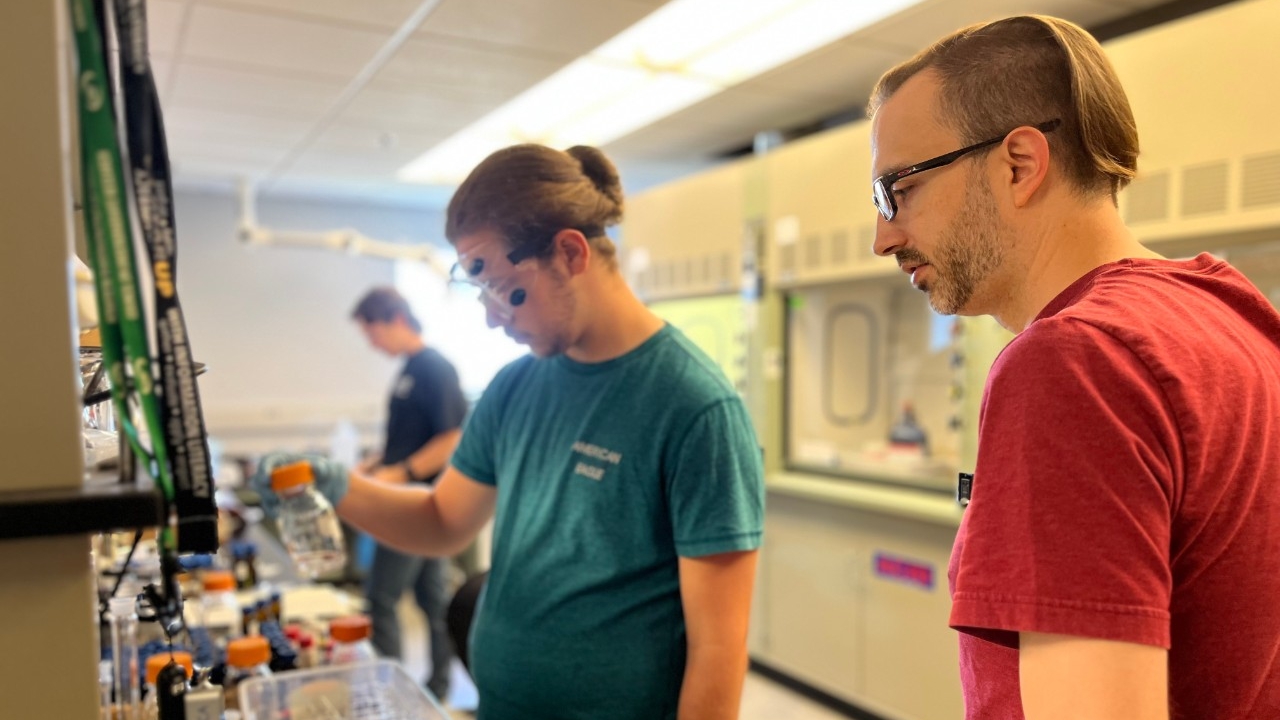
Faculty regularly receive support for undergraduate research through internally and externally funded grants, and publish numerous articles, most of which include NKU undergraduate students as co-authors.
Over the last decade, research faculty have received millions of dollars in externally funded grants from agencies, including (but not limited to):

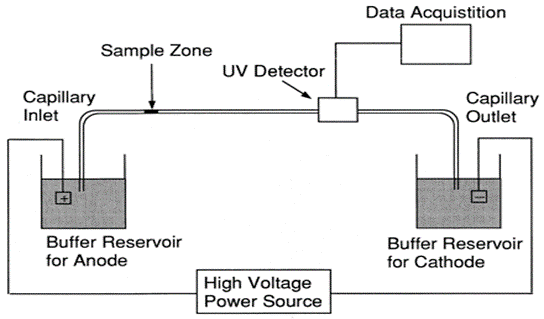
Capillary Electrophoresis Instrument Diagram
The Daniels group engages in a combination of physical and analytical chemistry research that utilizes Capillary Electrophoresis and Capillary Electrochromatography to measure the kinetics and dynamics of small molecules within mobile phases and the solid/liquid interface when a stationary phase is present. By focusing on external stimuli responsive polymers, this research can be used to understand how small molecules interact with adaptive materials in efforts to engineer smarter technology.
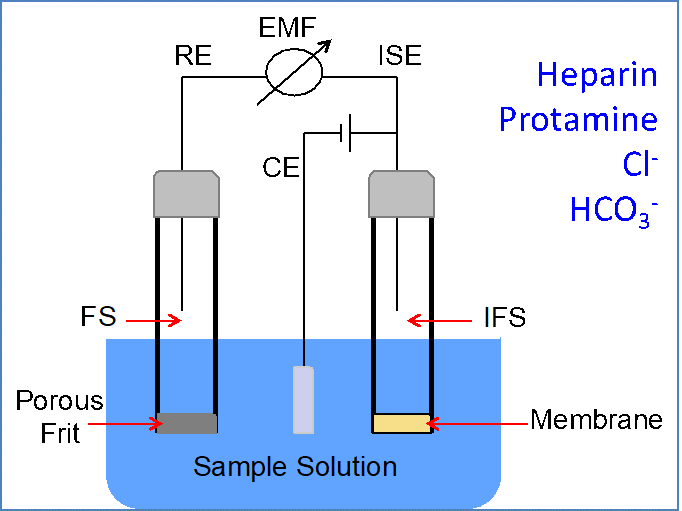
Electrochemical Sensor Diagram
Research in the Gemene group utilizes analytical chemistry techniques to develop electrochemical sensors that can be used in biomedical applications. Recent interests include the measurement of biomedically important polyions (e.g., heparin, protamine) and the detection of anions (e.g., chloride, bicarbonate) in challenging physiological samples.
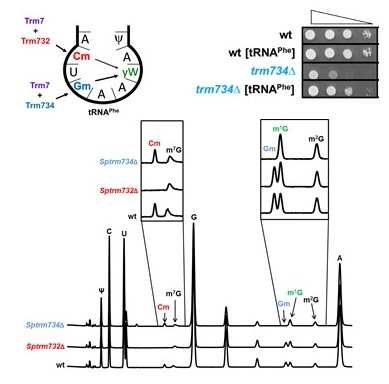
UPLC Chromatogram Diagram
Research in the Guy group focuses on the role of posttranscriptional tRNA modifications in eukaryotic cells where defects are often associated with diseases such as intellectual disability and cancer. The group uses a variety of biochemical, molecular biological, and genetic techniques to study proteins and nucleic acids to discover new aspects of tRNA biology.
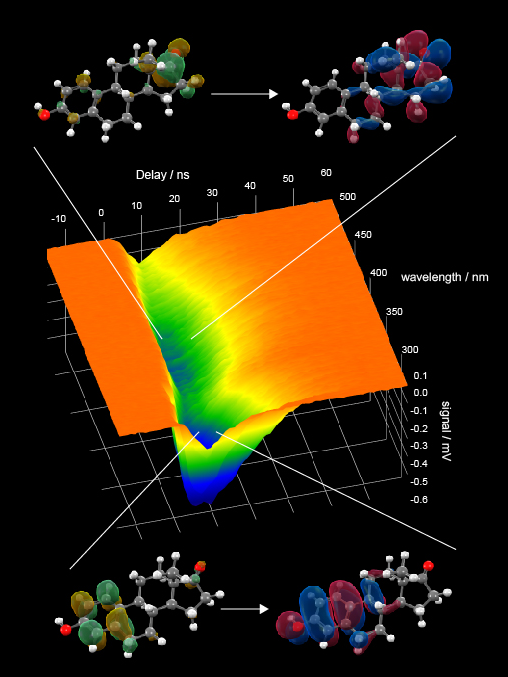
Molecular Energy Surface Diagram
The Hare group uses a variety of spectroscopic and computational techniques to study how molecules and light interact. Most of Hare's research focuses on molecules of environmental interest, such as estrogens and pharmaceuticals.
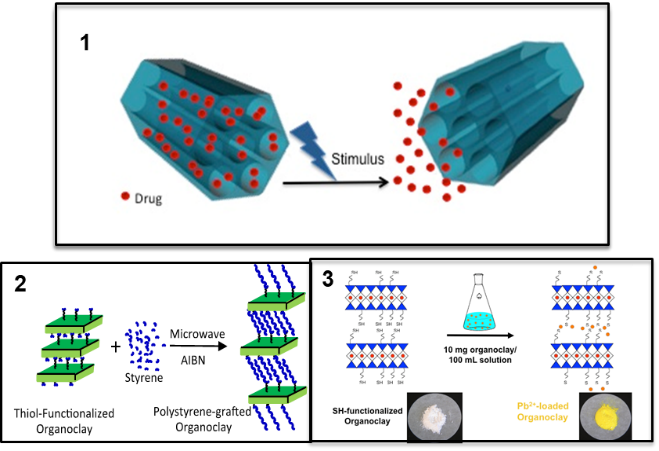
Inorganic Framework Diagram
The Lagadic group deals with the development of functional hybrid organic-inorganic silicate-based nanomaterials, with 1) applications as drug delivery systems, 2) engineered polymer composites, and 3) environmental adsorbents.
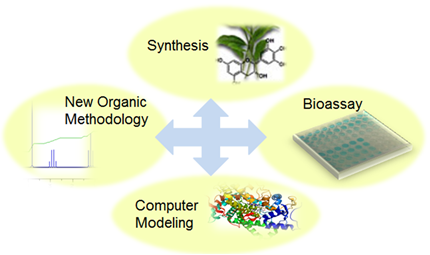
Drug Synthesis Schematic Diagram
The Ma group is interested in the design and development of anticancer drug candidates with a special focus on anti-breast cancer drug discovery. A combination of modern techniques such as organic synthesis, biochemistry and computer modeling are utilized in our lab to investigate bioactive chemicals and drug molecules.

Organic Reaction Scheme Diagram
Research in the Onorato group encompasses organic synthesis, medicinal chemistry, and strong collaborations with biology and cardiovascular research. Our main focus is the synthesis of biologically relevant natural products and their analogues, with the long term goal of developing lead compounds for the treatment of invasive fungal infections and chronic inflammation.
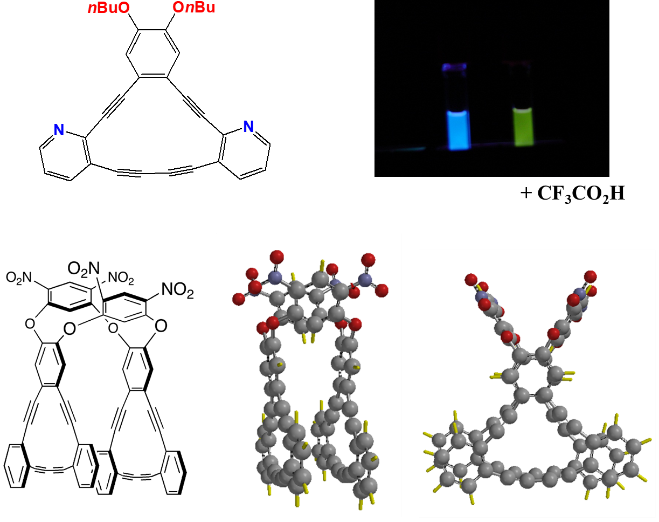
Dehydroheteroarylannulenes Diagram
The Russell Group studies the synthesis and characterization of dehydroheteroarylannulenes, compounds possessing benzene rings separated by carbon-carbon triple bonds. These compounds have unusual chemical and physical properties and are expected to be very important in the design and manufacture of nanoelectronics, such as molecule size wires, logic gates, and memory storage devices.
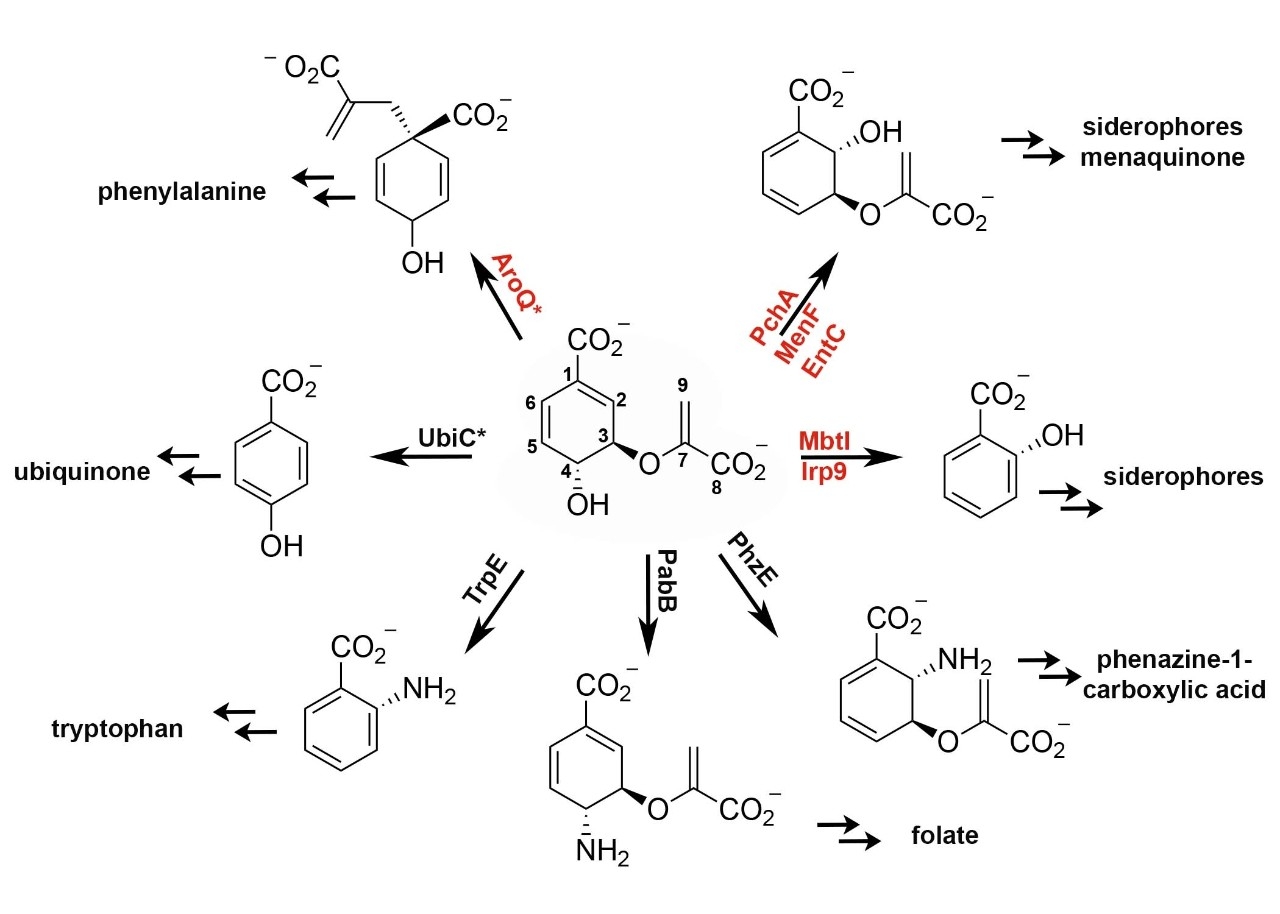
MST Enzymes Diagram
The Shelton Lab studies the MST family of bacterial enzymes (menaquinone, siderophore, tryptophan). The MST enzymes use chorismate (center) to generate precursors for multiple biosynthetic pathways. These enzymes are found in pathogenic organisms (Pseudomonas aeruginosa, Mycobacterium tuberculosis, and Yersinia spp.) and represent potential targets for new antibiotics. The subset of MST enzymes we study (red) perform either the isomerase reaction or both the isomerase and the lyase reactions. AroQ, the non-MST enzyme that generates prephenate, is also of interest because its mechanism provides an important comparison for the lyase-competent MST enzymes. To understand more about these enzymes and how they work we utilize X-ray crystallography, circular dichroism, and LC-MS (liquid chromatography-mass spectroscopy).